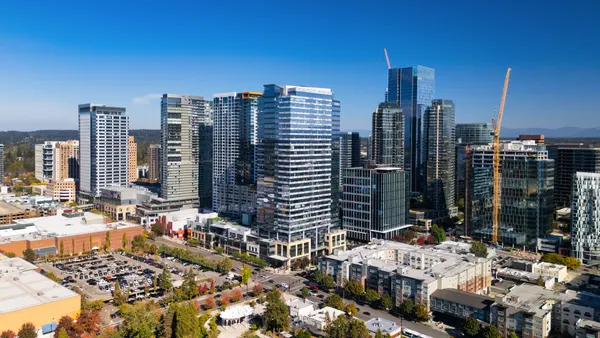Dive Brief:
- Sidewalk Labs, the smart cities offshoot of Google parent company Alphabet, is proposing that an independent third party collect and store any data collected in its Quayside smart city test site in Toronto. In a Medium post, Sidewalk Lab’s Head of Data Governance Alyssa Harvey Dawson said "an independent Civic Data Trust" should control all information collected from physical infrastructure.
- Under the company’s proposal, any government or private entity requesting data would have to file a public Responsible Data Impact Assessment, and any devices collecting data would have to be disclosed by the trust.
- Dawson also proposed that Sidewalk Labs would "open standards for any digital infrastructure and services it provides — so anyone can plug in or compete."
Dive Insight:
The proposals are a response to privacy and safety concerns that have dogged the project from the start. The Quayside project would provide a model for how cities could use all manner of connected technology, with amenities ranging from underground delivery systems to dynamic pavement to translucent covers for buildings that can react to the weather as a sort of "raincoat." But that futuristic technology also means the company would be collecting heaps of data on how residents interacted with it.
That’s led to plenty of concern from residents and organizers alike about how private companies would use — and protect — user information, and how much privacy residents would have from Google or other organizers. Earlier this month, Saadia Muzaffar, a member of an advisory panel for the project, resigned over what she called "apathy and a lack of leadership regarding shaky public trust" over those concerns.
Sidewalk Labs made clear that the proposals are not "fixed or final" and will be presented to the project’s Digital Strategy Advisory Panel on Thursday for more evaluation. Bringing in an independent, non-governmental third party could help assuage concerns that Sidewalk Labs will abuse its power, but opens questions about who would manage the data trust, and where funding would come from. The Quayside pilot isn’t meant to break ground until 2020 and residents wouldn’t move in until 2022, but clearly organizers have a way to go before the public’s angst is relieved.











